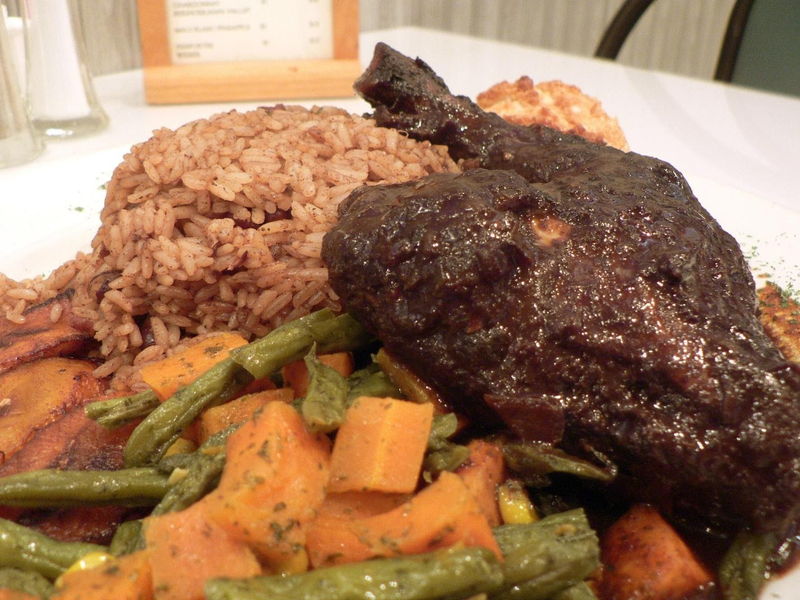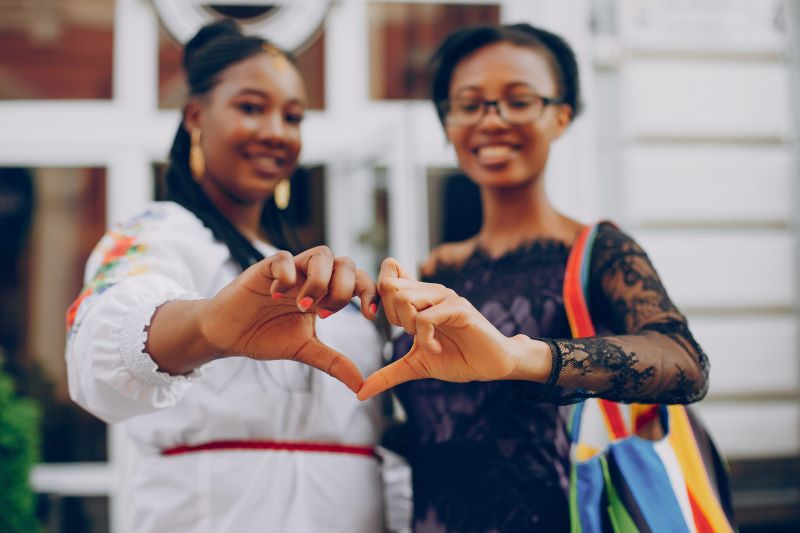
Independence Day Jamaica! Today, on August 6th of 1962, Jamaica officially declared independence from the British. We are taking a peek inside this gorgeous country to see the foundations that were laid for its influential culture and customs.
The indigenous people of this lush island are the Tainos or Awarak people, who are also found in the Dominican Republic, Cuba, Puerto Rico and more. They are believed to have traveled to the island from South America. They called the island Xaymaca, which means ‘Land of Wood and Water.’

(Arawak tribe)
When Christopher Columbus came to the island in 1494, he wreaked havoc, killing, torturing, enslaving the natives and bringing fatal diseases so the Spaniards could take over the land.
Jamaica was colonized by Spain and then Britain. During the transAtlantic Slave Trade, many enslaved Africans were brought to the island to work the fruitful plantations. The Kromanti, for example, is an Akan group of Ghana that were captured by the Asantes and sent to Jamaica. They showed great resistance to slavery. Most fled to the mountains to escape slavery and established their own towns. They became known as the Maroons. Most notably, Queen Nanny of the Maroons, an Asante Queen Mother, and her brother Kojo led a rebellion against colonial rule. They fought with the colonialists and eventually signed a peace treaty.

(Queen Nanny of the Maroons)
The Maroons of Jamaica are revered in the country. They are a symbol of both resistance and African cultural preservation. There were many slave rebellions in Jamaica, including Tacky’s Rebellion and a rebellion led by Paul Bogle. Most enslaved Africans brought to Jamaica were Akan (Kromanti, Ashanti etc,) Igbo, Fon, Yoruba, Ibibio and Kongo, but the Kromanti and Igbo tribes had the most dominance. The Kromanti language survives in Jamaica and is mixed with Patois words.
This country varies in shades and ethnicities. Their motto is “Out of Many, One People,“ and Jamaican Patois, the main language spoken on the island, is a mix of English, African and French languages.

(Jamaica Coat of Arms)

(Jamaican lady carrying water in Clarendon, Jamaica)
About 97% of the population is of partial or full African descent, including Afro-Chinese and Afro-Indians. East Indians make up 1.3%, Chinese people make up 0.2%, Europeans make up 0.3% and the other ethnic groups make up 0.6%.
Between the mid-1800s and early 1900s, Indian workers migrated to Jamaica, and from the late 1850’s, Chinese migrant workers came to Jamaica. The goal of this movement was for the colonialists to revive the sugar industry, which had begun to collapse in the country after slavery was outlawed. The Indian influence in Jamaica is seen in the food, as they brought curry to the island and now, curry chicken is a popular dish in the country.

(Indian-Jamaicans, called ‘Coolies’ in Jamaica)
Jamaica is known as the birthplace of reggae, a music style which evolved from varying African and European styles that gives voice to injustices faced in Jamaican and African diasporic realities. Bob Marley is a musician who globalized reggae and the Rastafarian movement through his music. The country is also known for popularizing loc hairstyles, specifically through Rastafarianism, a religion that became popular in Jamaica in 1930 after leader Marcus Garvey prophesized that a great king would come from Africa, just before Haile Selassie I of Ethiopia was crowned.

(Charlie Chaplain, popular Jamaican raga and dancehall artist, dons locs)
The national dish of Jamaica is Ackee and Saltfish, which is a mix of Ackee, a fruit brought to the island from Ghana by enslaved Africans around 1792, and salted cod. The dish is stewed with veggies and paired with fried breadfruit, dumplings or ground food ( boiled yam or potatoes.) Other Jamaican dishes include Jerk Chicken, a native dish to the country, Jamaican Red Peas Soup, Curry Chicken, Curry Goat, Cornmeal Porridge, Callaloo and more.

(Jerk chicken with veggies and rice and peas)
Thank you for reading. We hope you found this interesting, we definitely did! Have you ever been to Jamaica? Are you from there? What is your favorite part of the country?





